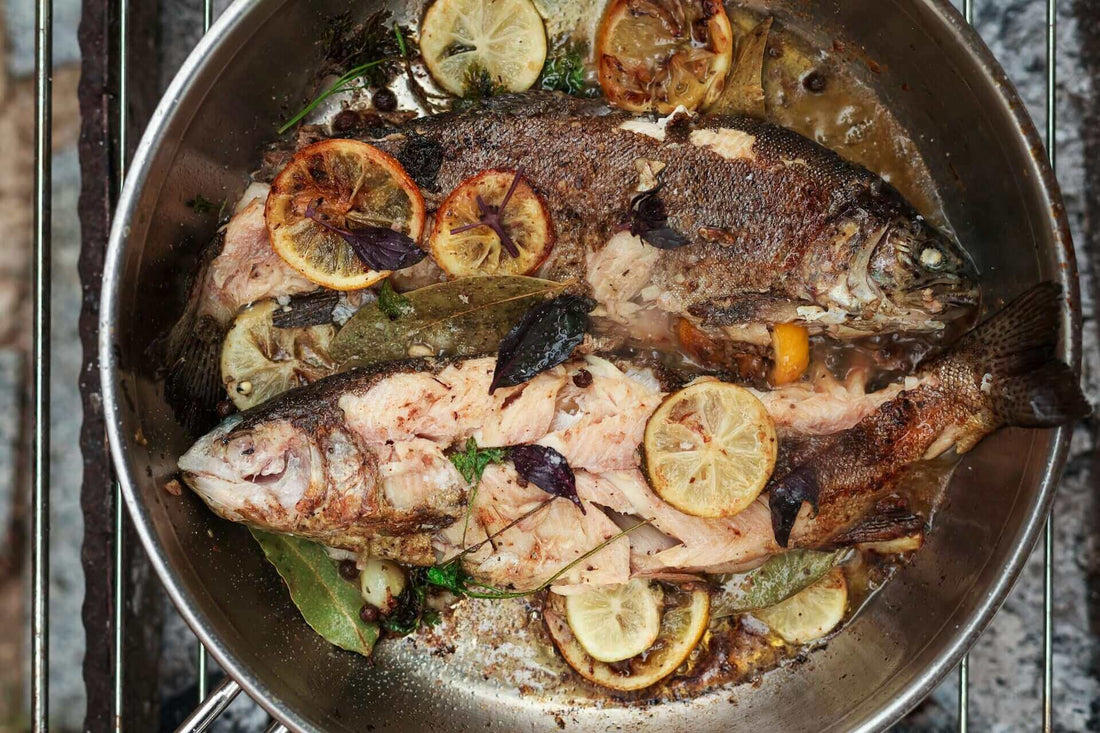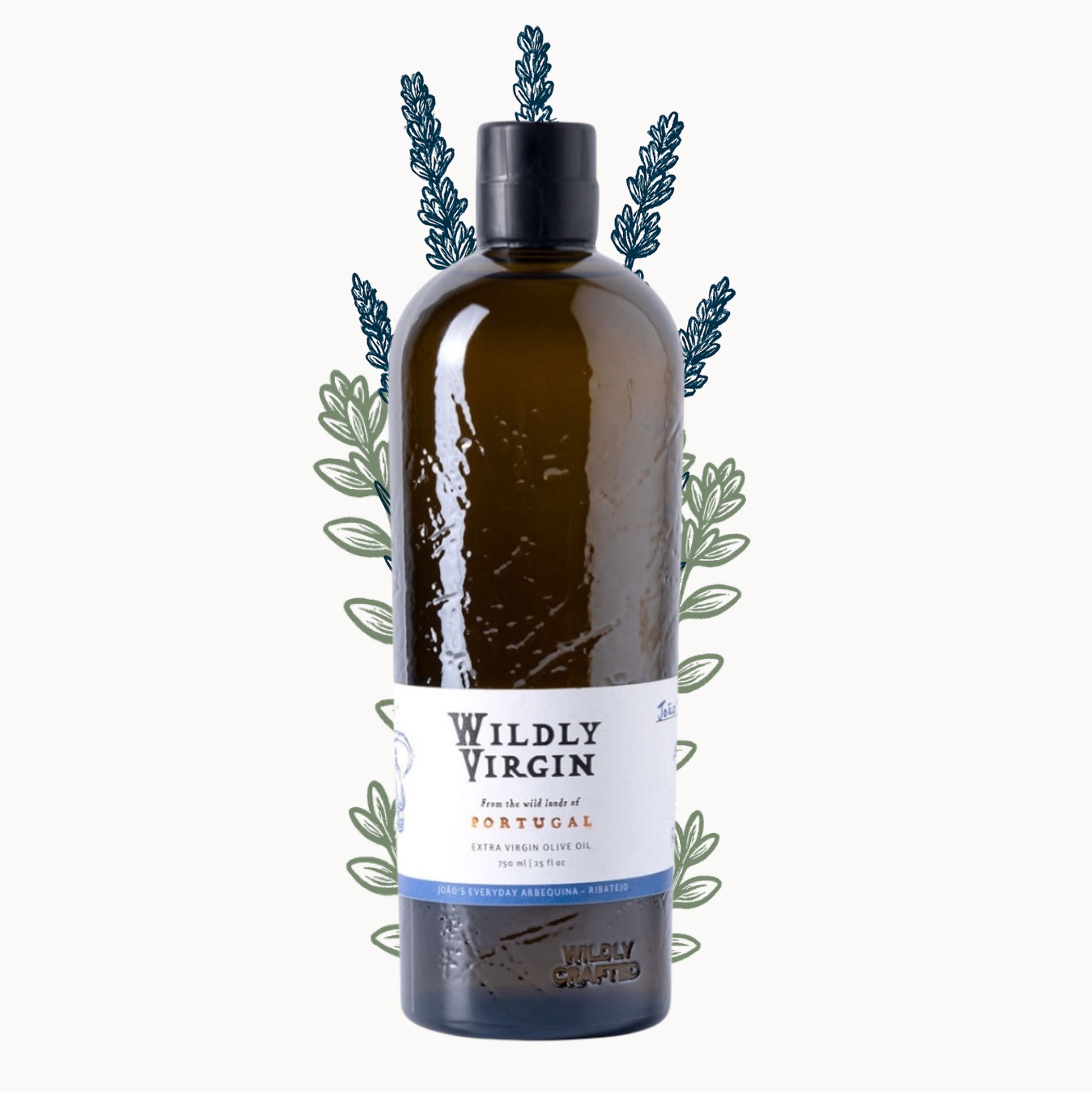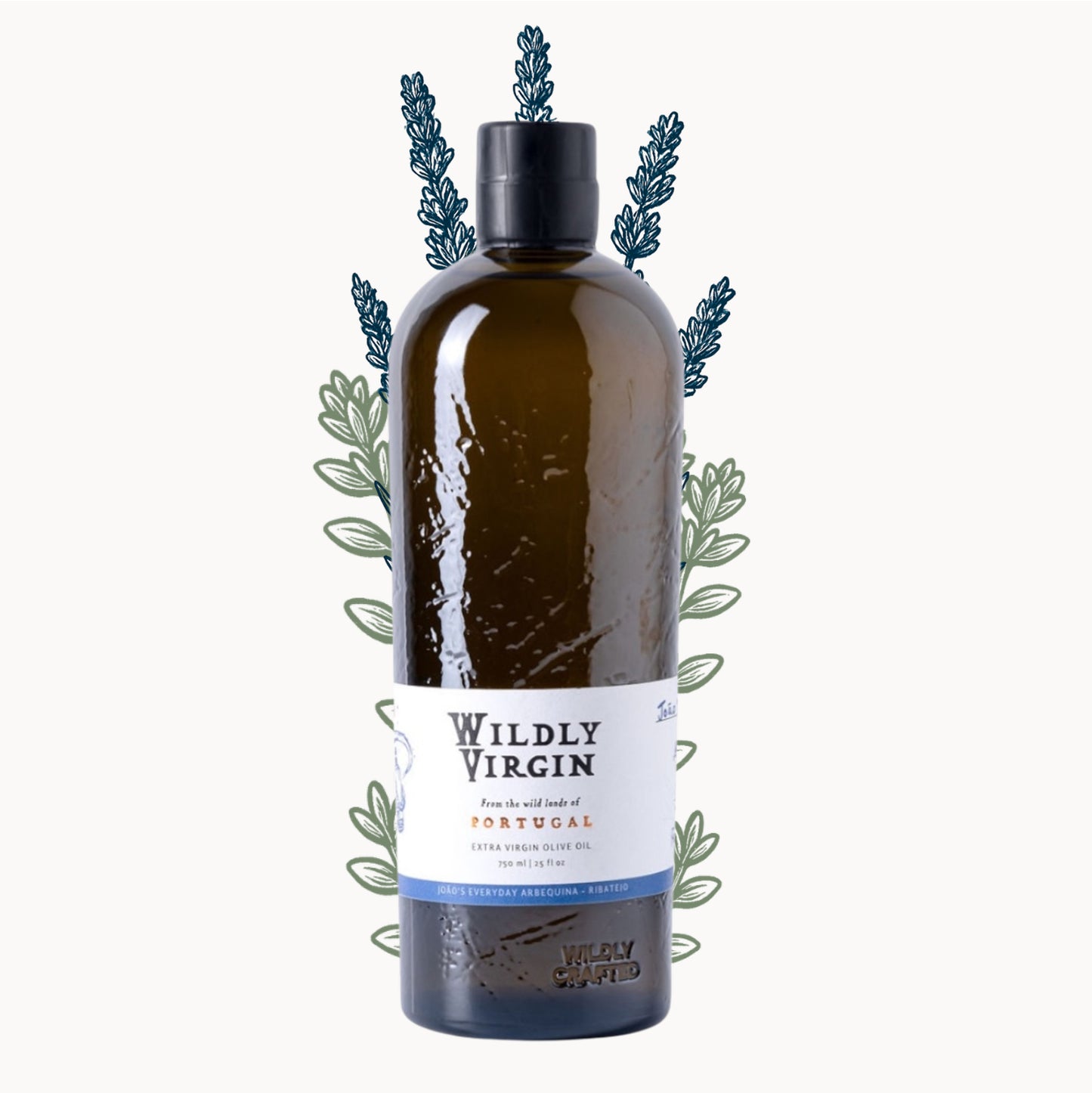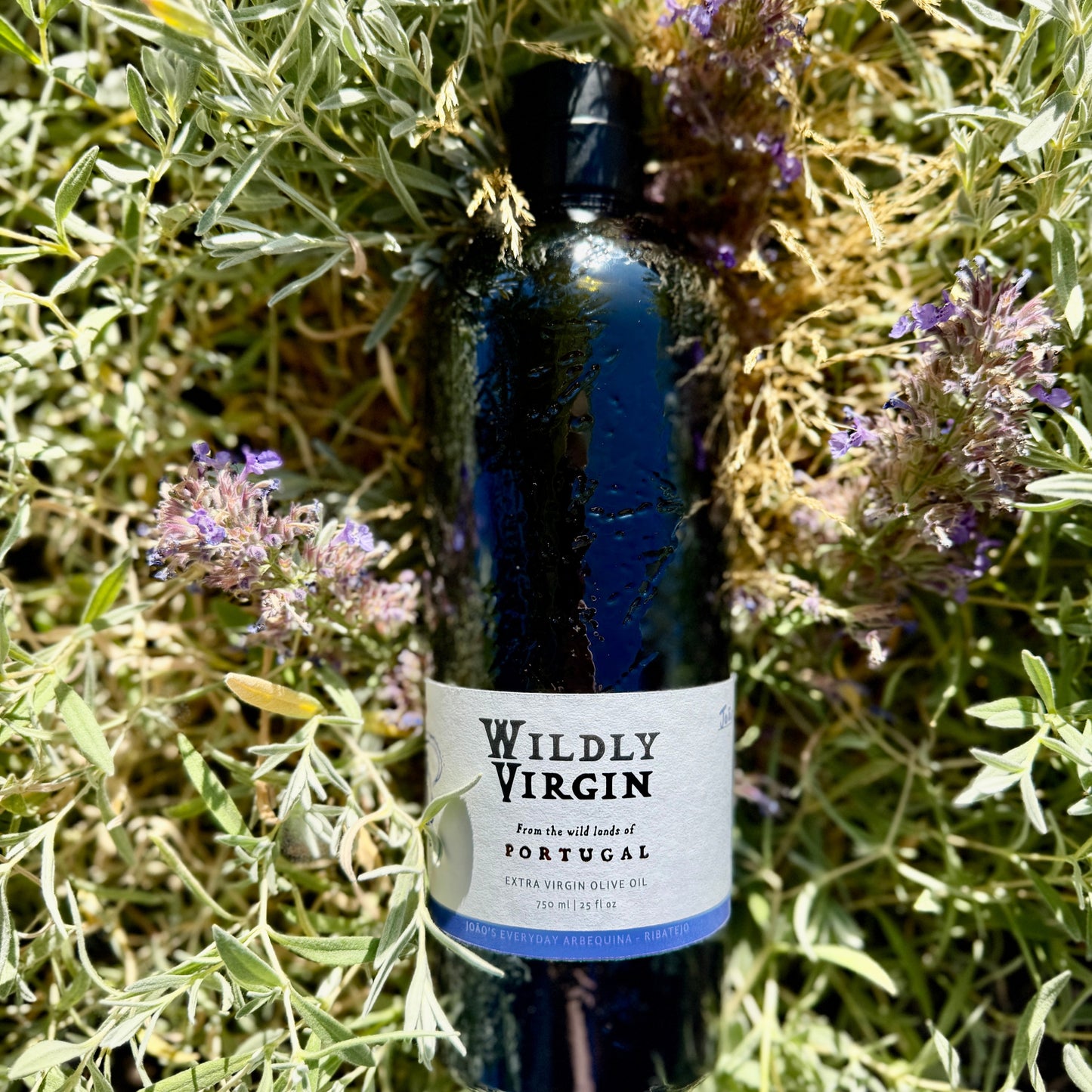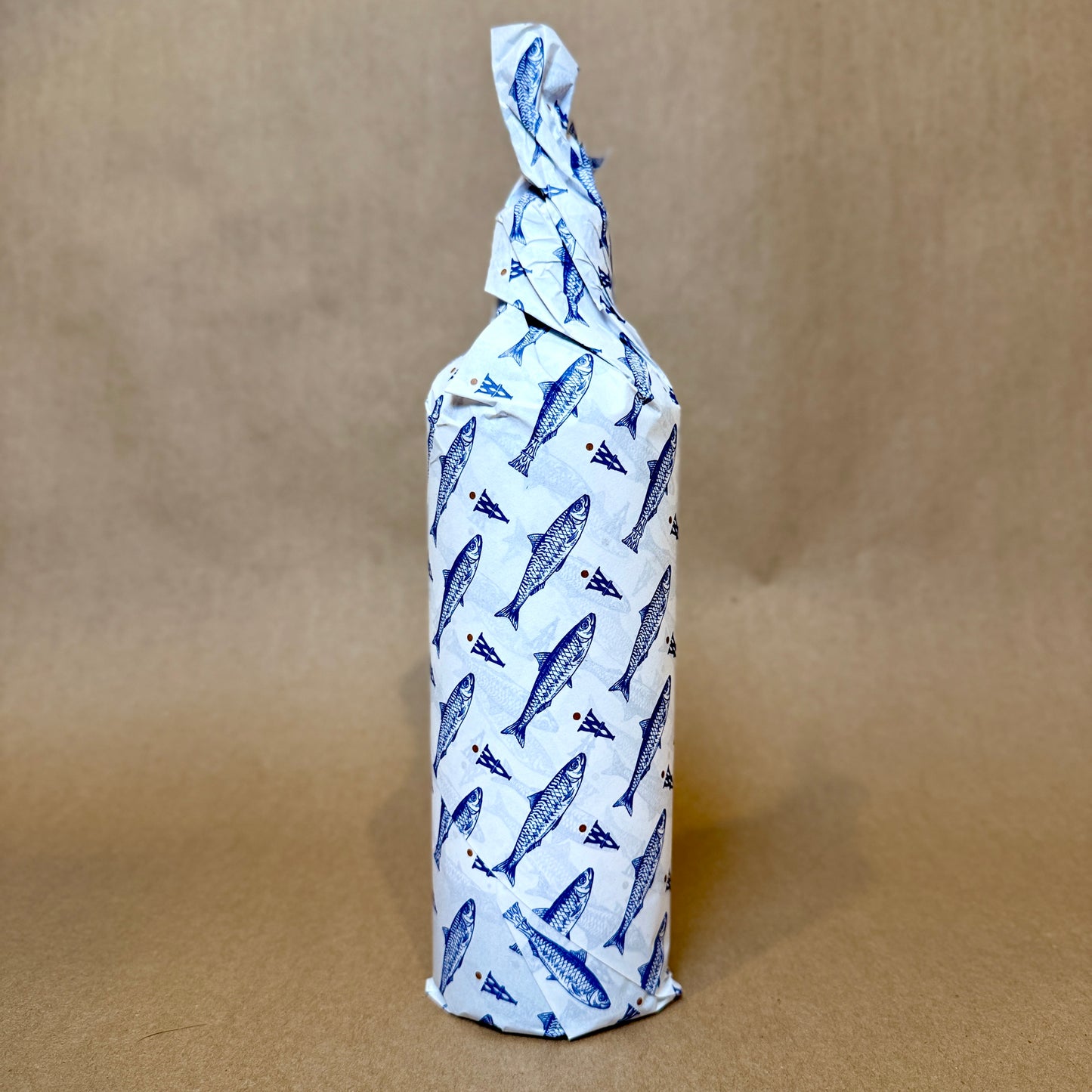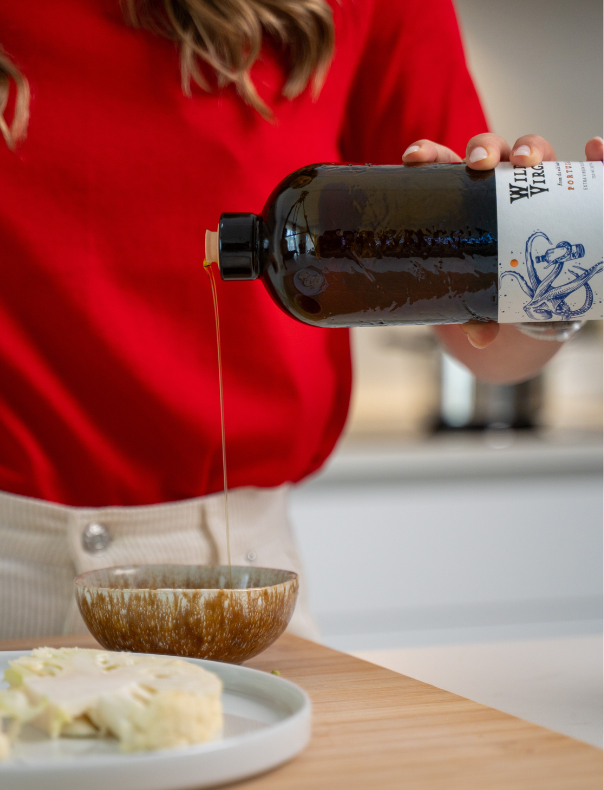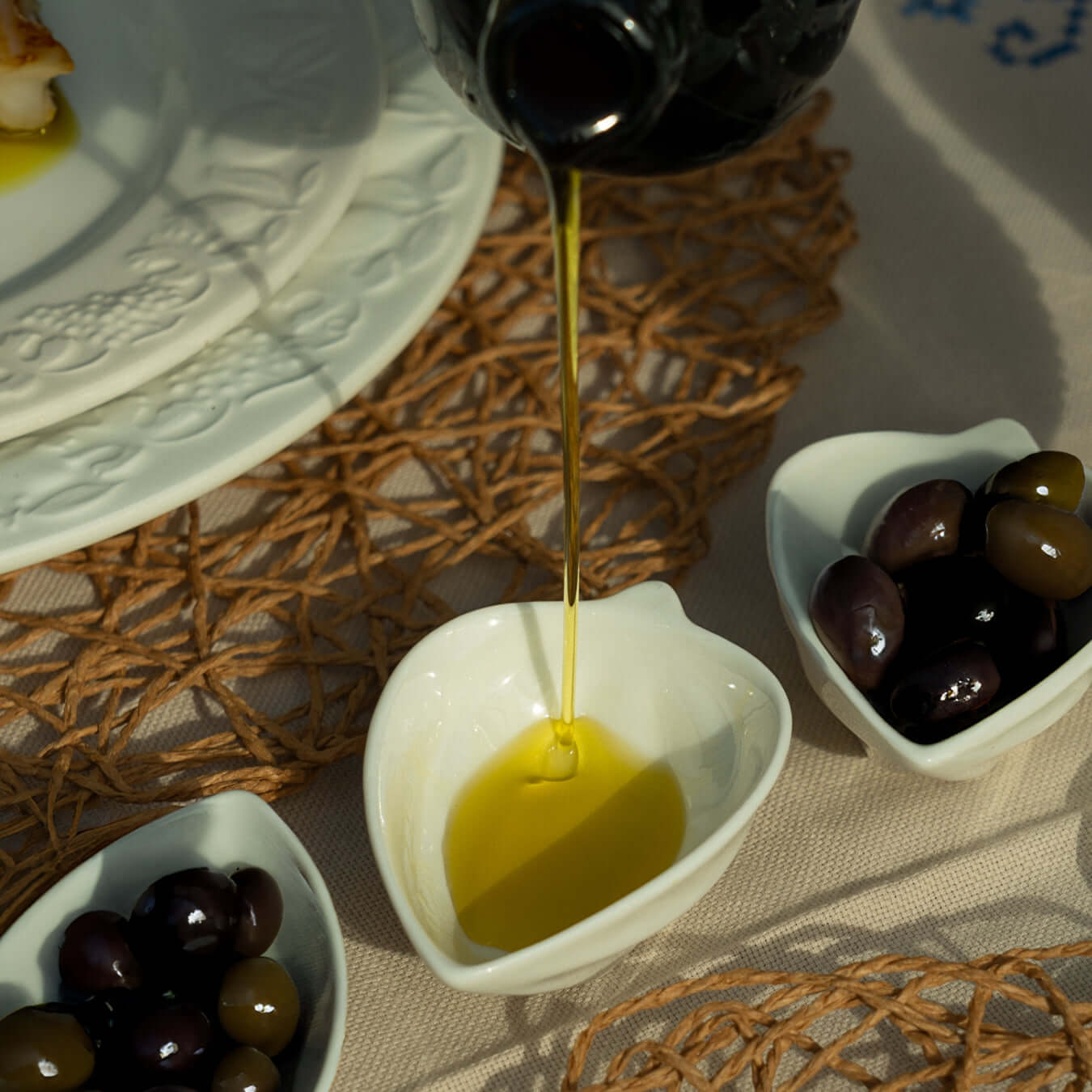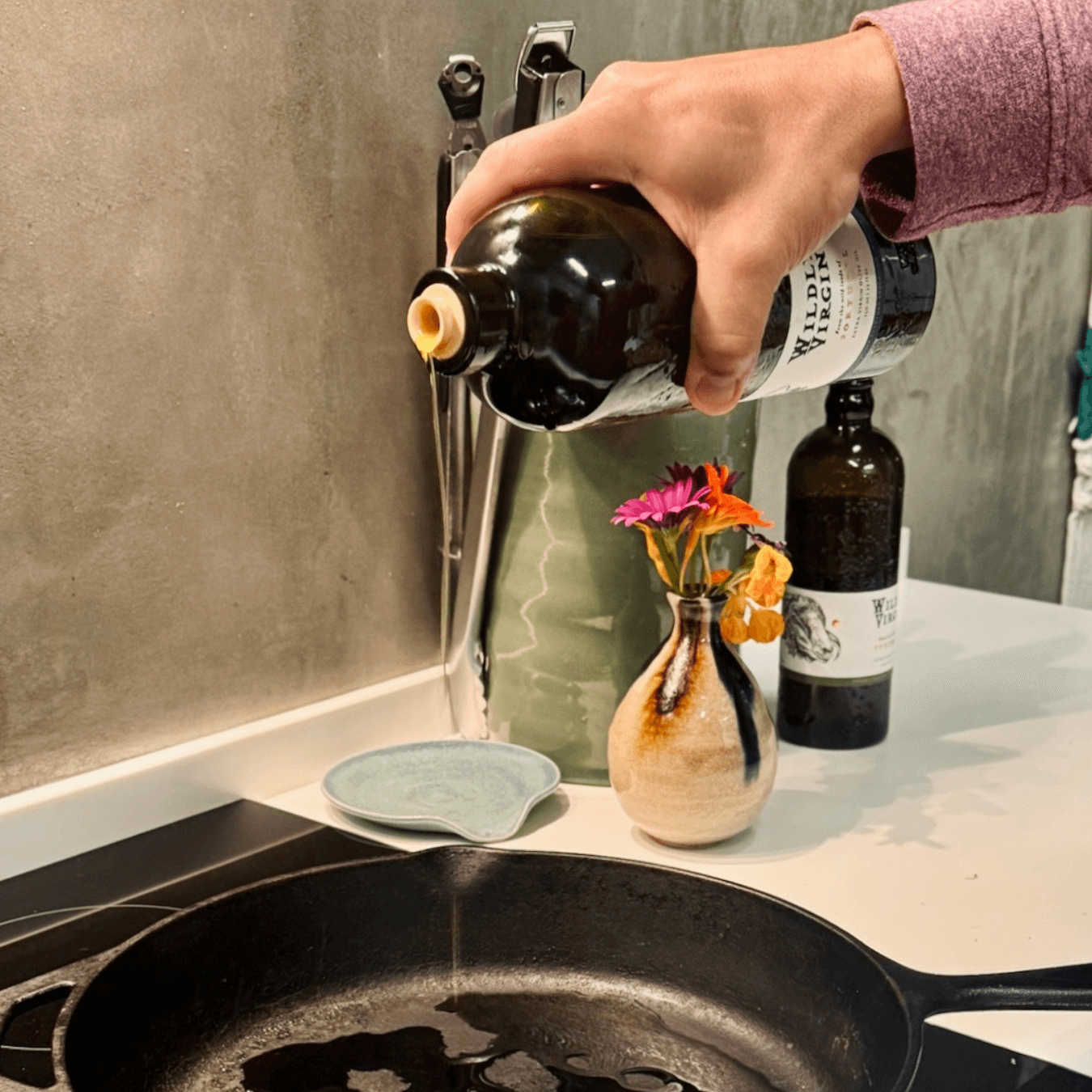Think olive oil isn’t suitable for high-heat cooking? Think again. Despite what you may have heard, extra virgin olive oil not only stands up to the heat—it thrives under it. From sautéing to baking, this kitchen staple is more versatile (and healthier) than most people realize. Let’s separate fact from fiction and show you why olive oil should be your go to cooking oil.
There is a lot of confusion out there about cooking with olive oil! Is it safe to cook with olive oil? What about the smoke point? Sautéing, frying, baking? Does cooking with it affect the health benefits? Does heating it up make it harmful?
We'll answer all these questions and more as we debunk myth from truth.
Is Olive Oil Safe for High-Heat Cooking?
Absolutely! Not only is it safe, but this whitepaper from the Culinary Institute of America confirms that extra virgin olive oil is one of the most stable oils for cooking, and the best overall cooking fat from a health perspective. Thanks to its high concentration of stable monounsaturated fats (up to 83%) and powerful polyphenol antioxidants, quality EVOO can withstand the heat of almost every cooking method while maintaining its beneficial properties.
The two major considerations when considering the safety of a cooking fat are: smoke points and stability. Let’s explore both.
Understanding Olive Oil's Smoke Point: How It Compares to Other Oils
The smoke point of a fat is the temperature at which it starts to break down and smoke.
One of the most persistent myths about olive oil is that it has a low smoke point. In reality, extra virgin olive oil has a smoke point between 374-410°F, which is well above the ideal temperature for most cooking methods.
Here is a comparison to other fats’ smoke points
| Olive Oil | 374°F - 410°F |
| Butter | 302°F |
| Canola Oil | 400°F |
| Grapeseed Oil | 420°F |
| Peanut Oil | 450°F |
| Corn Oil | 450°F |
| Avocado Oil | 570°F |
Here's a quick guide to cooking temperatures:
- Sautéing: 250-350°F
- Baking: typically under 400°F
- Deep frying: 350-375°F
Even when baking a focaccia or roasting vegetables in the oven at 450°F the food itself, and the olive oil, would rarely get to that temperature unless the food is very over-cooked! Food has water in it which prevents it from getting to the temperature of the ambient oven. Watch this video from About Olive Oil that goes in depth on the temperature olive oil reaches with various cooking methods.
Understanding Oxidative Stability: Why Olive Oil Is More Stable Than Other Cooking Oils
While most of the attention is on smoke point, this isn’t even what you should be focused on! When a cooking oil is exposed to heat, oxygen and light it oxidizes and oxidized oil can produce harmful compounds and make food taste bad. The better an oil holds up to these elements is referred to as it’s oxidative stability. Oxidative stability is the more important metric to focus on than smoke point.
This 2018 study tested the oxidative stability of different types of oils and found that corn oil, despite having a higher smoke point than olive oil, produced twice the amount of harmful compounds at high heat.
The antioxidants in EVOO are what protect it’s stability. Refined oils like vegetable oils, on the other had, have very few antioxidants and breakdown easily.
This study showed that EVOO remains stable even after 24-36 hours of continuous deep-frying at 180°C (356°F).
The bottom line on both smoke point and oxidative stability is olive oil is completely safe to use even at high temperature.
Do You Lose Health Benefits When Heating Olive Oil?
So we know all about the health benefits of EVOO. Will we lose them if heating it up? While some nutrients are affected by heat, research shows that olive oil retains most of its beneficial compounds even after cooking. The polyphenols and antioxidants in EVOO actually help protect both the oil and your food during the cooking process.
The study mentioned above that tested heating olive oil for 36 hours found that while it lost some of it’s antioxidants, it still retained it’s omega-3 fatty acids and polyphenols.
In fact, studies have found that vegetables cooked in olive oil can be more nutritious than when raw, as the fat helps your body absorb fat-soluble vitamins and nutrients.
To summarize, you do lost some health benefits when olive oil is heated up, especially at high heat or for a long time, but most are preserved.
Can I Deep Fry With Olive Oil?
As mentioned previously, unless you are deep frying at very high temperatures you will retain most of the health benefits of the EVOO, as all those polyphenols help to keep it stable. However, this is the one type of cooking we would recommend not using olive oil for. EVOO is more expensive than vegetable oils and it seems wasteful to use so much olive oil for deep frying and then throw it out.
So, while EVOO is stable for deep frying, its cost may make other oils more practical for this method.
Can I Replace Butter with Olive Oil when Cooking?
Most of the time, yes! Olive oil works beautifully in most baked goods, adding moisture and a subtle complexity to the flavor. Check out our Olive Oil Lemon Cake recipe for a delicious example!
Things to keep in mind:
- When substituting olive oil for butter, you typically use 3 parts olive oil for every 4 parts butter because butter contains water and milk solids, whereas olive oil is pure fat.
- Olive oil’s fruity, grassy flavor is a great complement to things like chocolate, apples, and lemon. Picking a fruitier or more peppery EVOO can subtly effect the flavor of the dish.
- Olive oil will make your baked goods moister. This is great for things like cakes, but might not be right for say a pie crust.
Ready to start cooking with extra virgin olive oil? Explore our collection of olive oil focused recipes and pick up some premium Portuguese extra virgin olive oil to make them shine.

